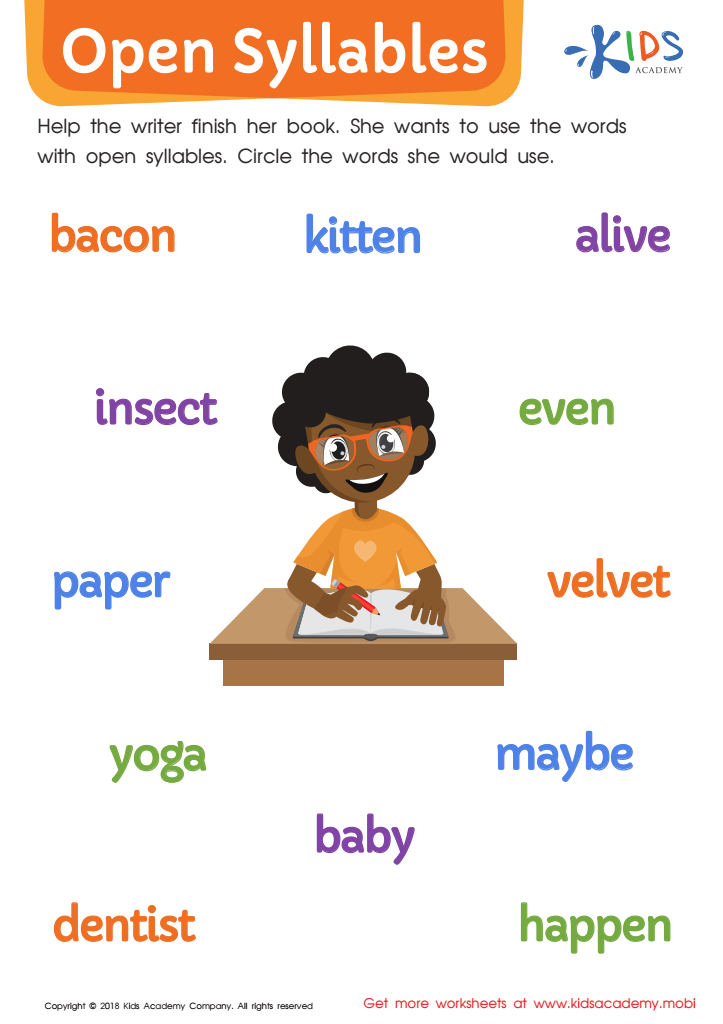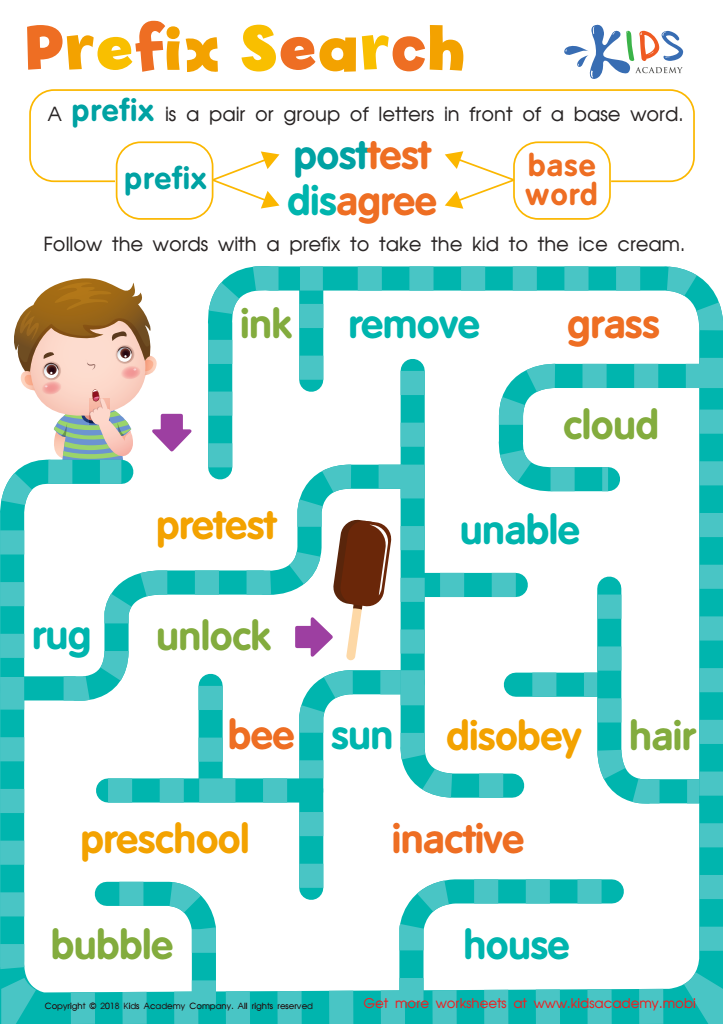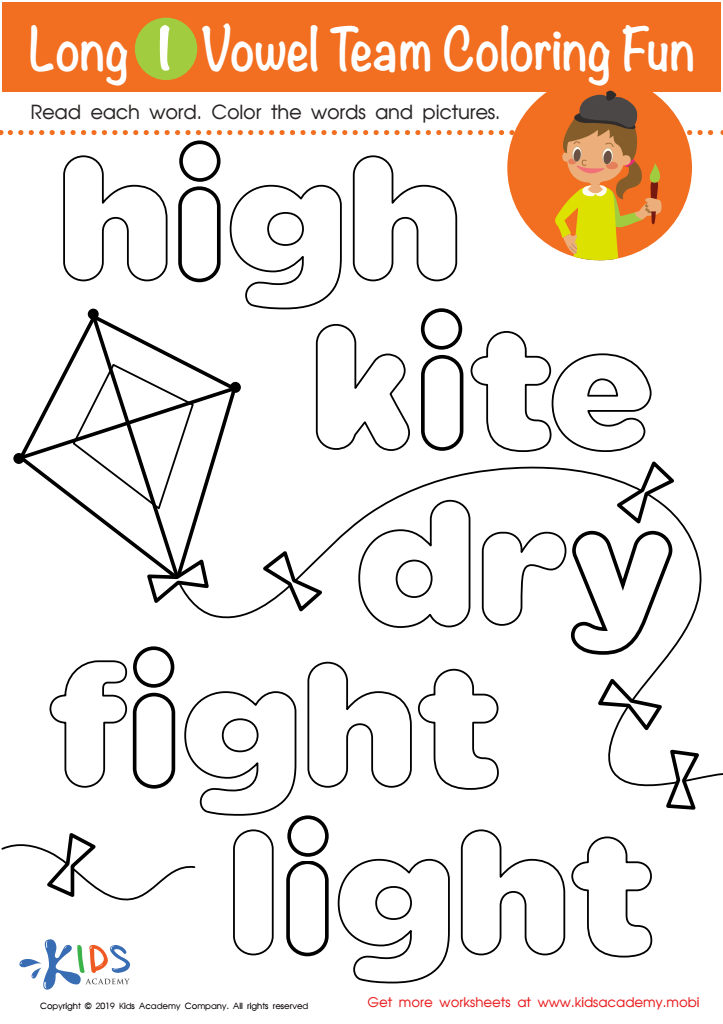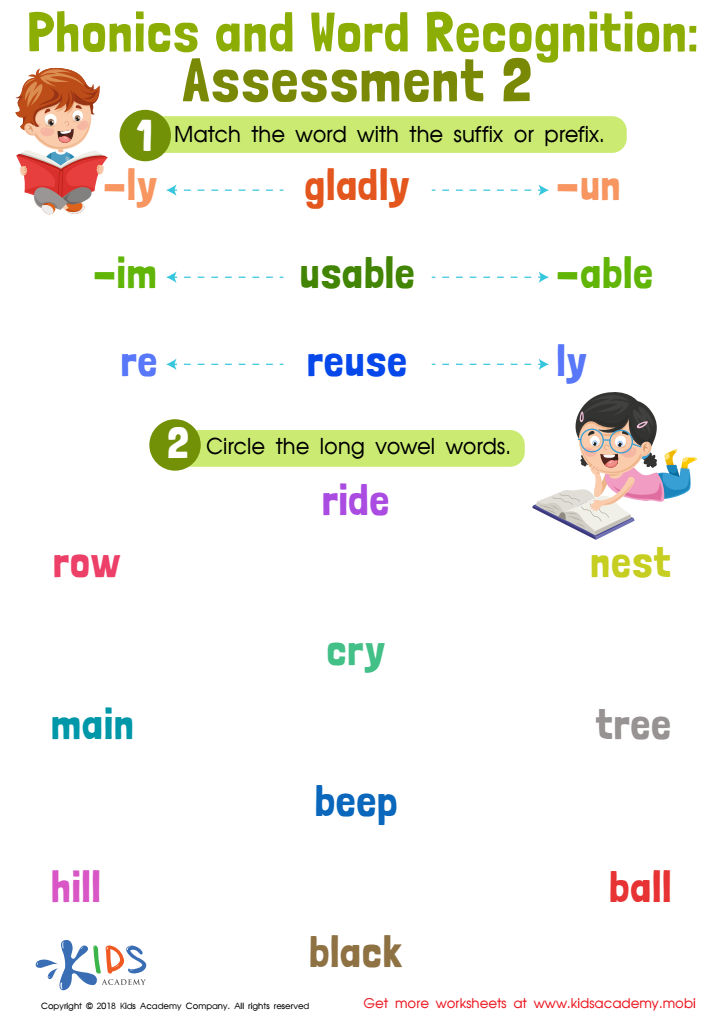Word identification Phonics Worksheets for Ages 7-8
7 filtered results
-
From - To
Enhance your child's reading skills with our Word Identification Phonics Worksheets designed for ages 7-8. These engaging worksheets help young learners master phonic sounds, blend letters, and recognize words effortlessly. Perfect for both school and home practice, each activity fosters confidence in reading through interactive and enjoyable exercises. Tailored specifically to support children in connecting sounds to letters, our resources pave the way for fluent reading by focusing on fundamental word identification skills. Equip your child with the tools they need for reading success while making learning fun with our expertly crafted phonics worksheets!


Open Syllables Worksheet


Phonics and Word Recognition: Assessment 1 Worksheet


Reading: Prefix Search Worksheet


Long I Vowel Team Coloring Worksheet


Phonics and Word Recognition: Assessment 1 Worksheet


Phonics and Word Recognition: Assessment 2 Worksheet


Phonics and Word Recognition: Assessment 2
Word identification and phonics are fundamental components of early literacy that significantly impact a child’s academic journey, particularly for children aged 7-8. At this critical stage, children transition from learning to read to reading to learn. Mastery of phonics enables them to decipher new words independently, promoting reading fluency and confidence. When children can recognize and pronounce words easily, they are more likely to enjoy reading, which fosters a positive learning attitude.
Parents and teachers should prioritize word identification and phonics because these skills serve as the building blocks for vocabulary development and reading comprehension. A strong phonics foundation allows children to understand and apply knowledge of letter-sound relationships, which is crucial for tackling complex words and texts as they progress in their education.
Additionally, early success in reading leads to better performance across all subjects. Reading proficiency contributes to greater knowledge retention and critical thinking skills. By focusing on phonics and word identification, parents and teachers not only support current academic success but also set the stage for lifelong learning and literacy.
Ensuring that children receive proper phonics education equips them with the tools they need for effective communication and academic achievement, thereby enabling their overall cognitive and personal growth.
 Assign to My Students
Assign to My Students














